The famous “You spoony bard!” quote from the first Final Fantasy IV English translation comes up all the time in my articles, so I thought it’d be nice to give it its own dedicated article.
Basically, there’s a scene a few hours into the game in which an old man attacks a prince disguised as a bard. In the original Super NES translation of the scene, the old man yells, “You spoony bard!”. This quote became famous over time and has appeared in every official Final Fantasy IV translation and re-release since.
”Spoony Bard” In Final Fantasy IV Translations
The Recipe for Fame
So why is this quote such a big deal? I hear this a lot from Japanese gamers and occasionally from younger English-speaking gamers. You could probably write an entire book on the phenomenon (I won’t), but it’s a combination of a few things:
- Console gamers were accustomed to a certain type of writing in Japanese-to-English game translation at the time, and this suddenly veers from that.
- Similarly, this game’s English translation had already established a certain level and style of writing by this scene, and this line suddenly goes in a different direction.
- But the biggest factor of all is that nobody uses “spoony” in everyday English, and most of the target audience had probably never even heard of the word before at the time – I know I hadn’t, at least. So although it makes perfect sense to us and sounds normal after hearing it for so many years, back then the word “spoony” probably came across as meaning “spoon-like” for many players. Other players probably thought it was a typo or a translation mistake.
For these reasons, ”You spoony bard!” is often considered a bad translation – but it’s technically not even a translation at all. It’s a completely made-up line that doesn’t exist in the original game.
Actually, if you’ve played Final Fantasy VI before, you know that scene where Gau jumps around and laughs at Cyan’s use of “thou” over and over? This “spoony bard” thing is a lot like that – most of Final Fantasy IV’s Super NES translation used a standard style of speech, so suddenly seeing this weird phrase made fans jump around and repeat “spoony bard” over and over too.
Anyway, if the Japanese text doesn’t mention anything about spoony bards, why did the line get changed during the translation? I’ve been analyzing all the Final Fantasy IV scripts for years now, and I feel there were two main causes behind the line change:
- It’s clear that the script was translated by a Japanese speaker who lacked the ability to write in fluent English. But there are also small chunks of text throughout the script that were clearly revised and edited to sound better. This was later confirmed by another translator:
They had a person who spoke some English and she did her best with Final Fantasy II, which was her game. I didn’t have a chance to work on that game. When I talked to the guys that that hired me, the senior VP and then the finance guy, they basically had spent some 24 hour blocks of time late into the evenings, trying to rewrite the text as best they could without ever having played the game. They found so many issues with the screen text when they started reading it, they figured they should take a shot at it. So it was a mess.
- The battle dialogue window is very limited in size, so a lot of battle text had to get rephrased or rewritten anyway.
If you’re curious about the nitty-gritty translation details of this scene, see my full write-up here.
”Spoony Bard” References in Other Games
Some Final Fantasy translators enjoy the “spoony bard” quote enough to insert references to it into other Final Fantasy game translations. At the same time, some game developers paid homage to the famous “spoony bard” quote by referencing it in their own games. The result: lots of “spoony bards” in all sorts of games!
Note that this whole “spoony bard” joke isn’t a thing in Japan, so pretty much every reference you see in a Japanese-to-English translation has been added into the script. In the Trinity Universe scene above, for example, the character actually asks in Japanese: “Like, can you shoot black holes from your mouth, summon meteors, or teleport and stuff?”
Summary
As an entertainment translator, I’m always keenly aware that every translation choice I make might accidentally transform into a legendary quote or a terrible meme. I think this “spoony bard” quote was my first introduction to this idea that a single translated line can live on for years – and now for almost three decades.
I’d like to keep an eye on how the “spoony bard” line gets used in other officially published works, so if you ever see it in other games, movies, books, etc., let me know. I’d like to update this article from time to time as new references are discovered!


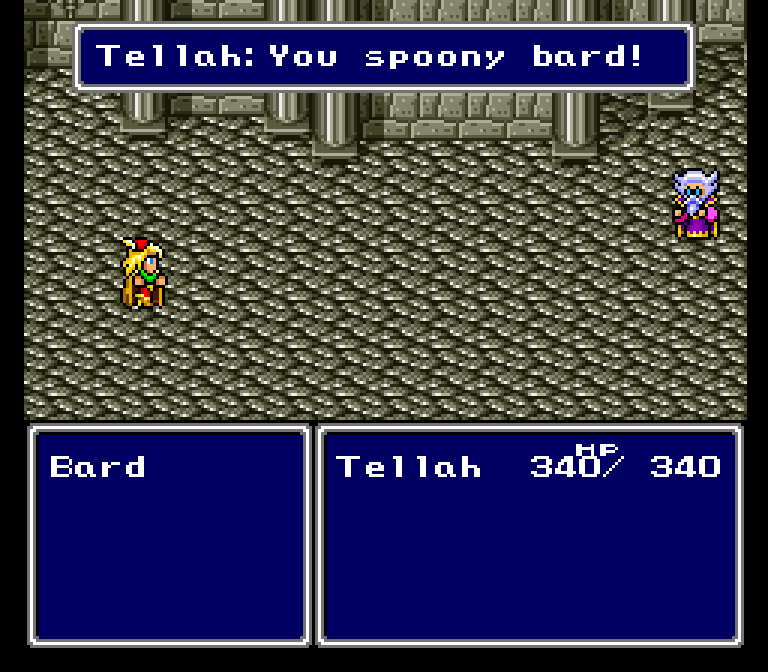
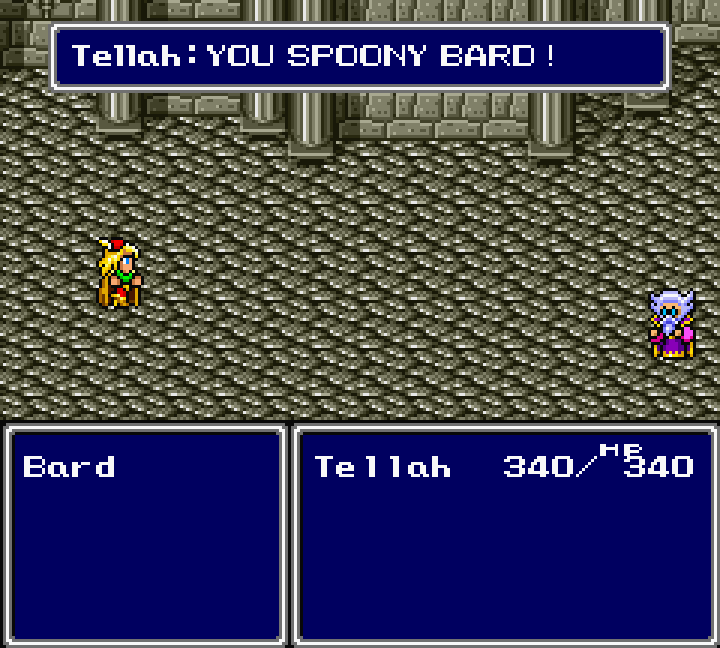
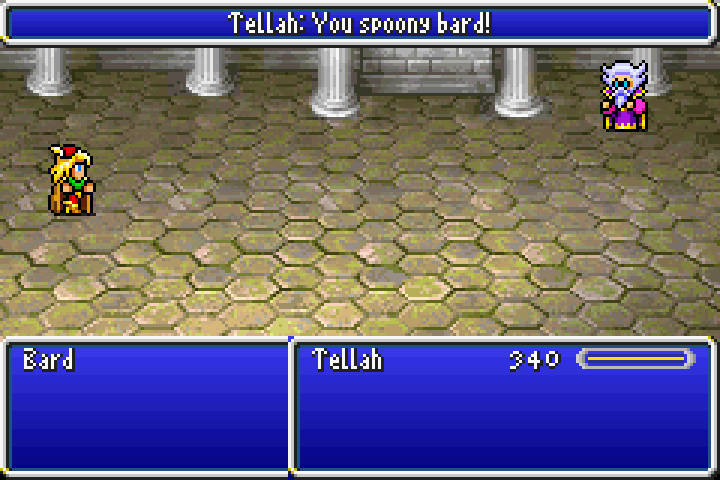
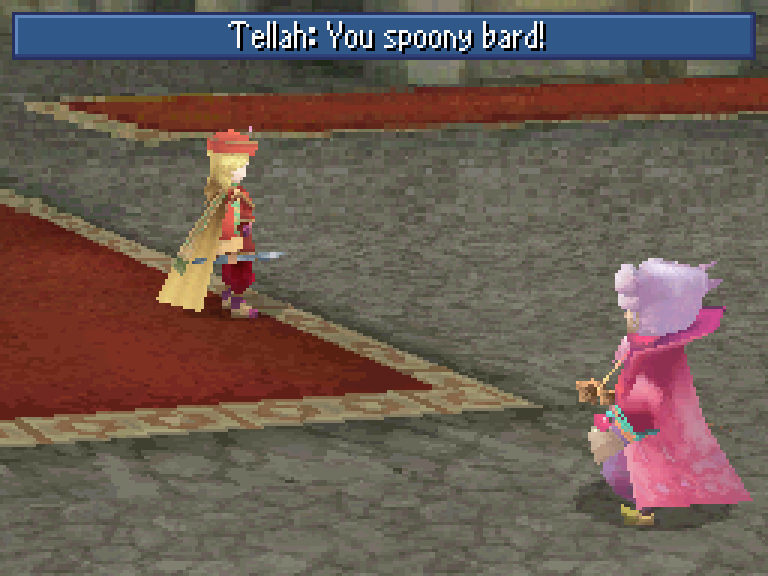
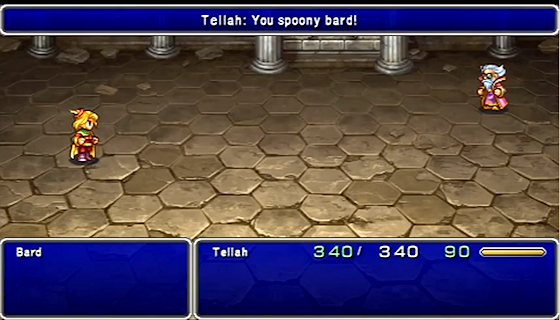
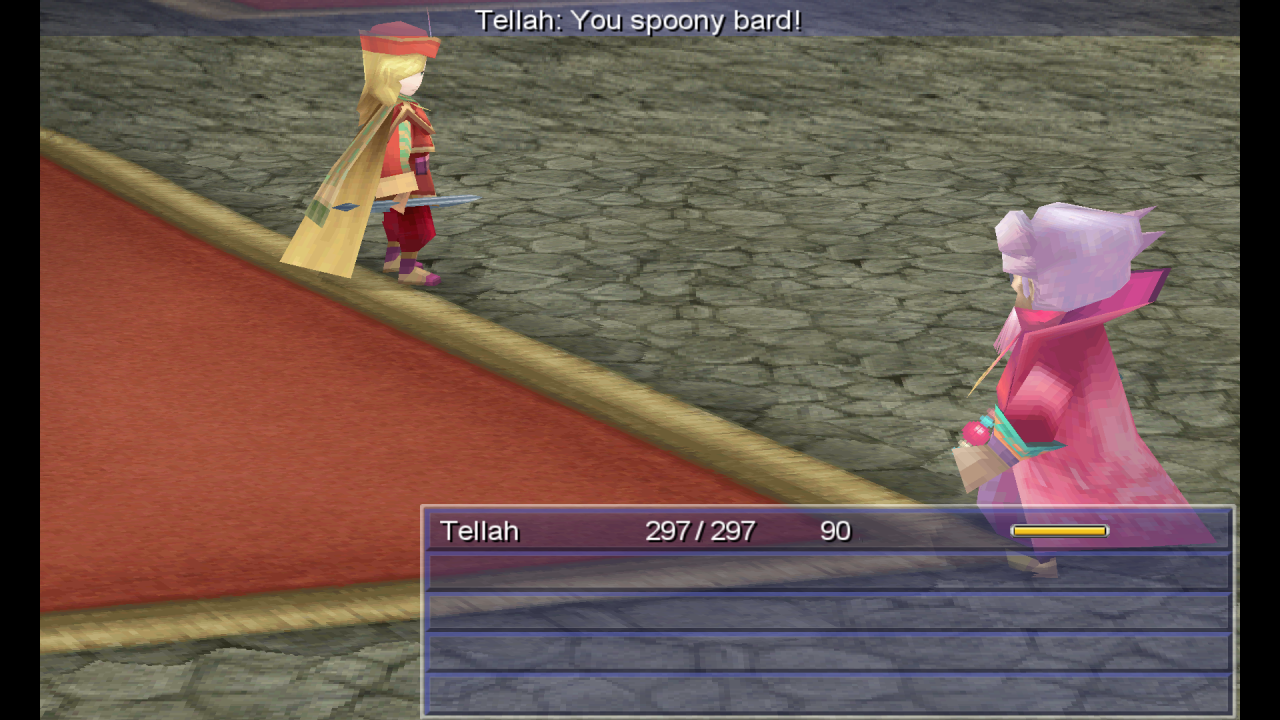
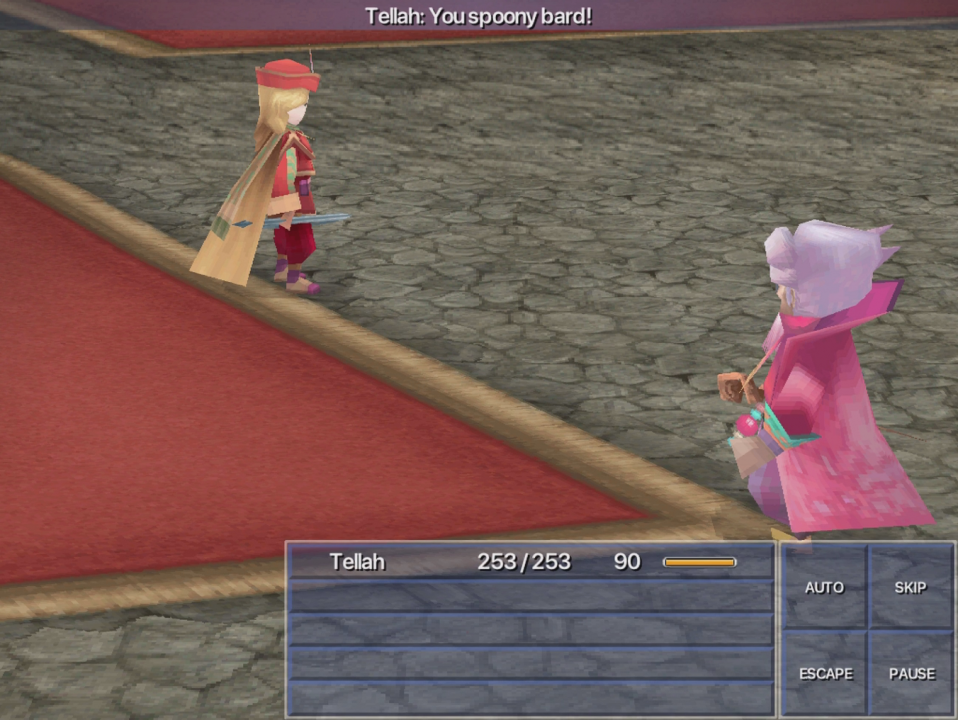
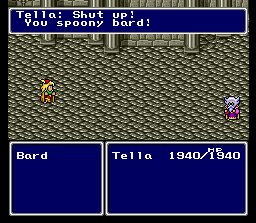

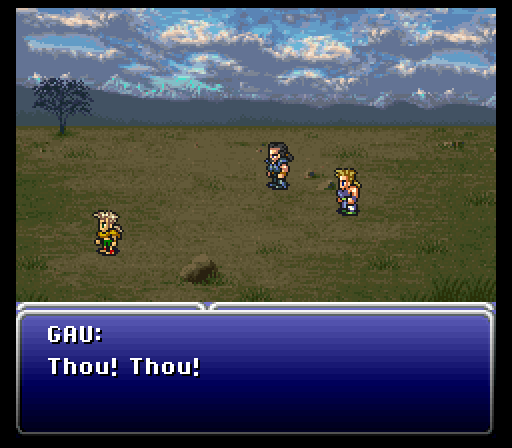
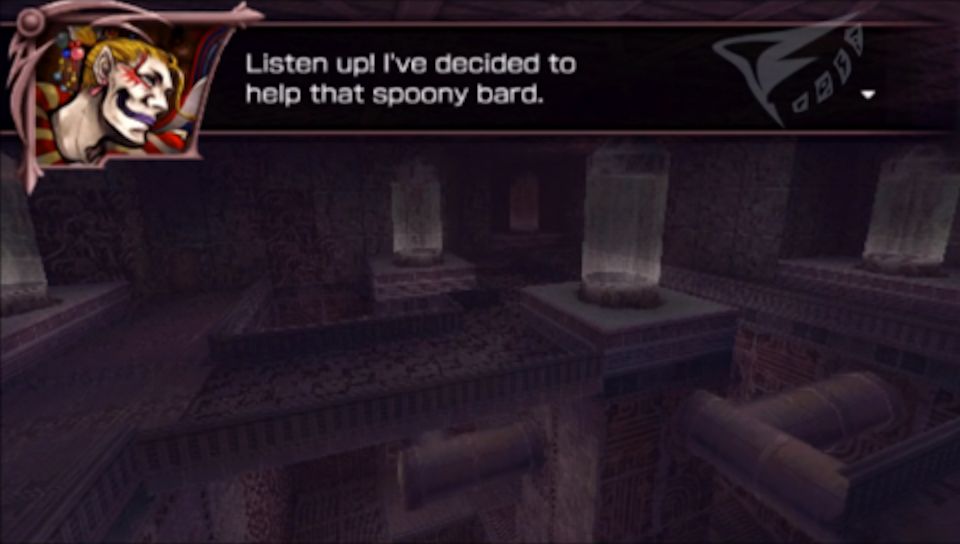
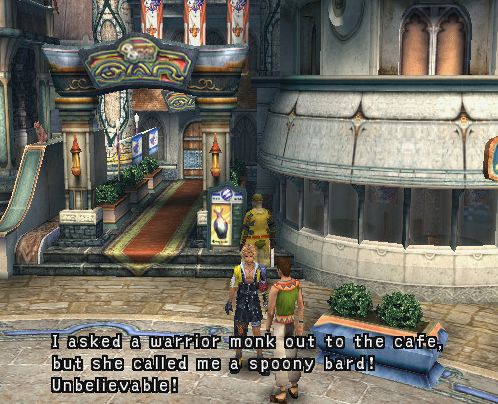
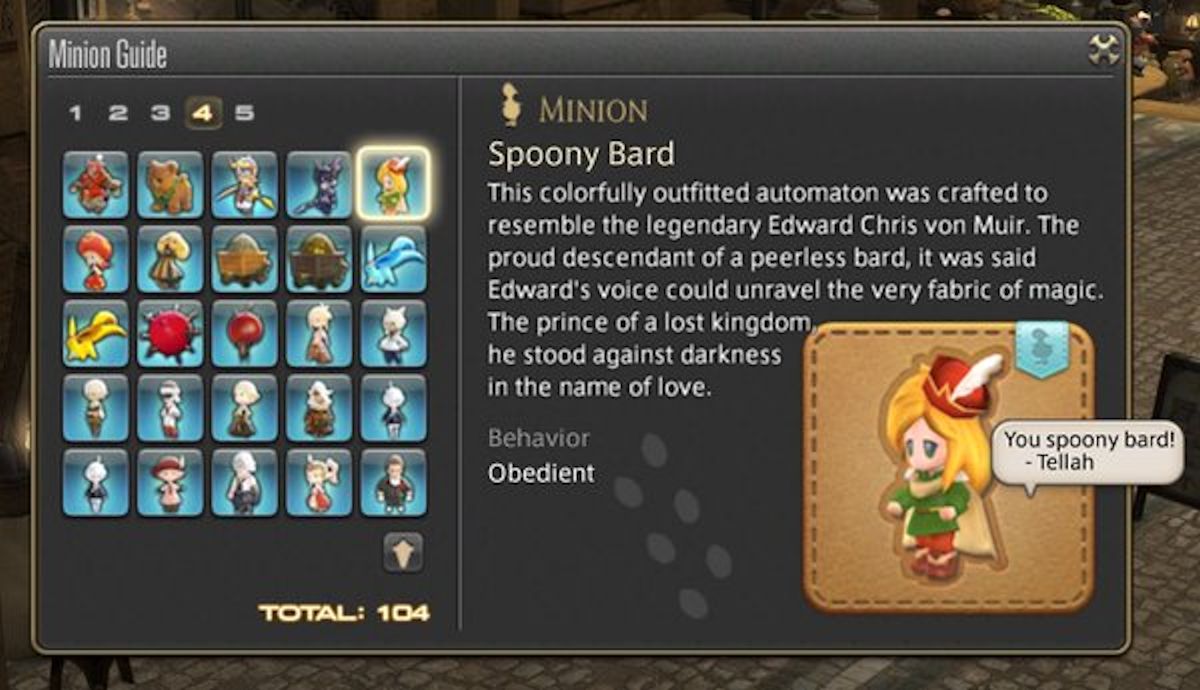
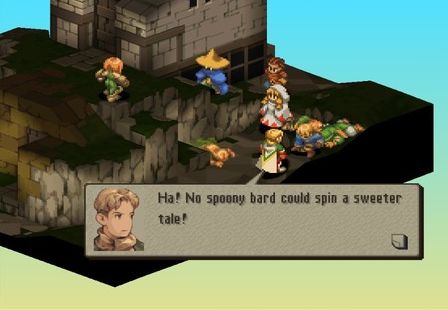
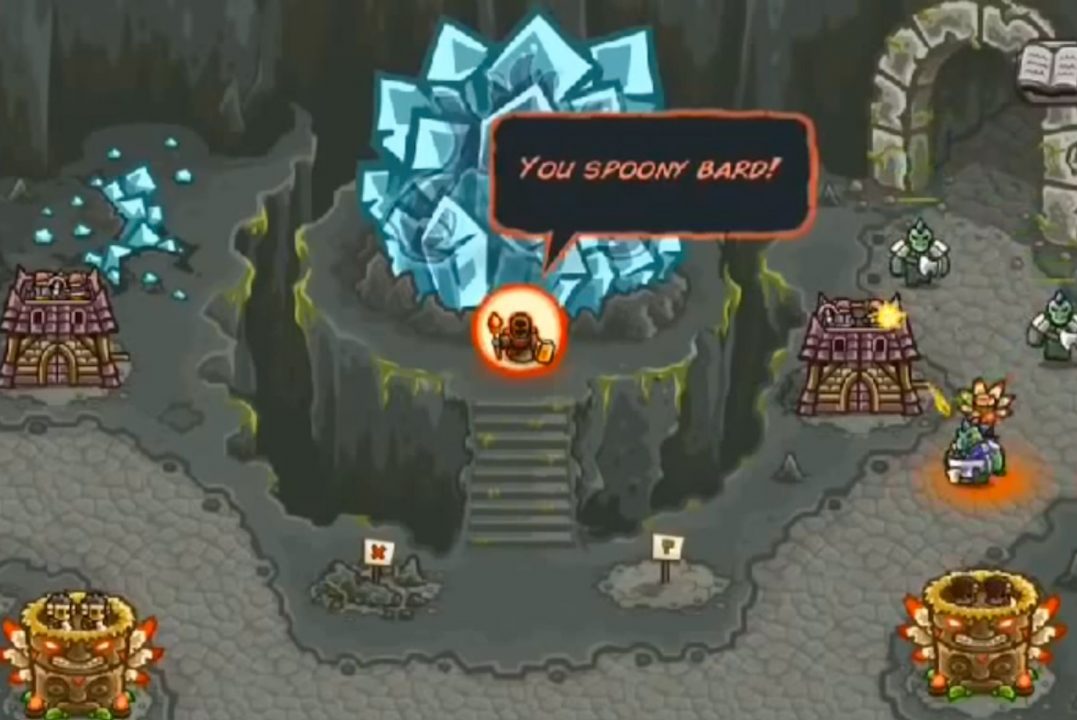
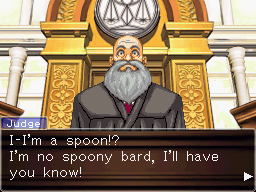
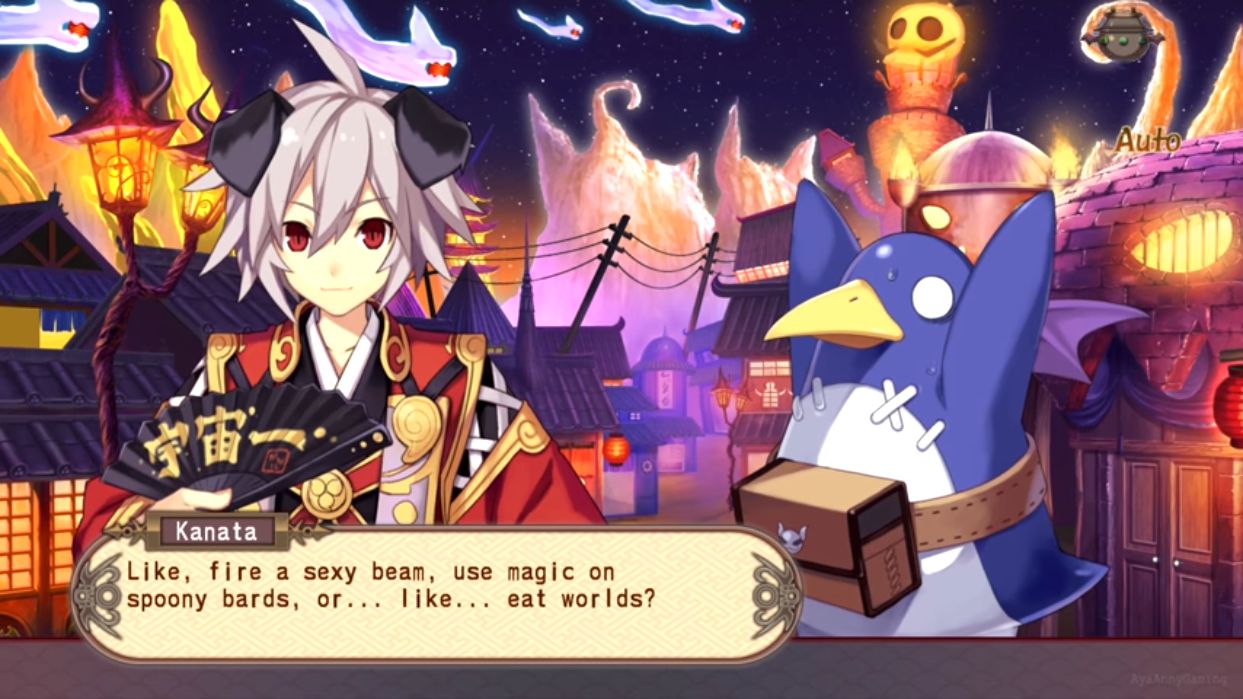
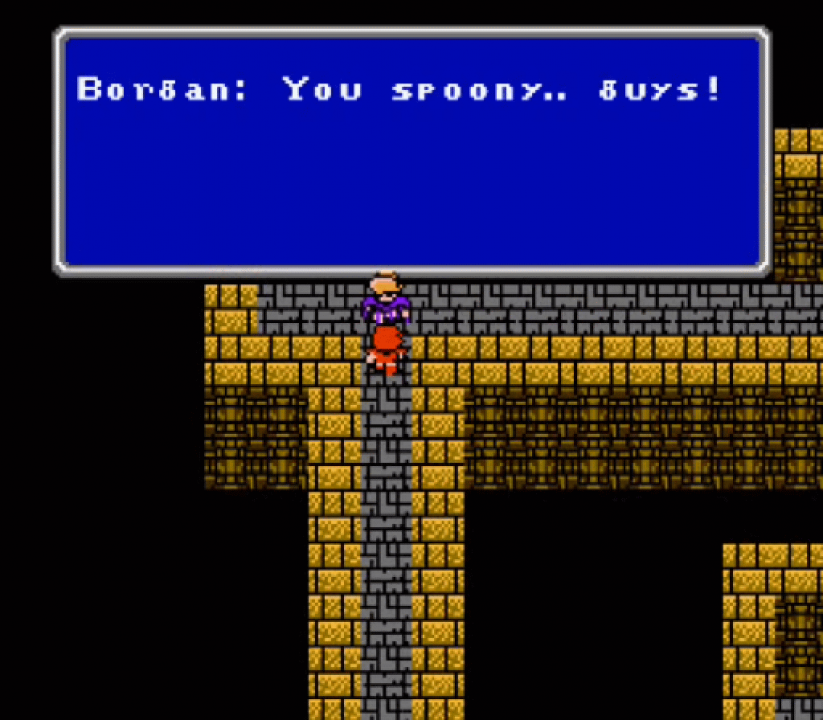
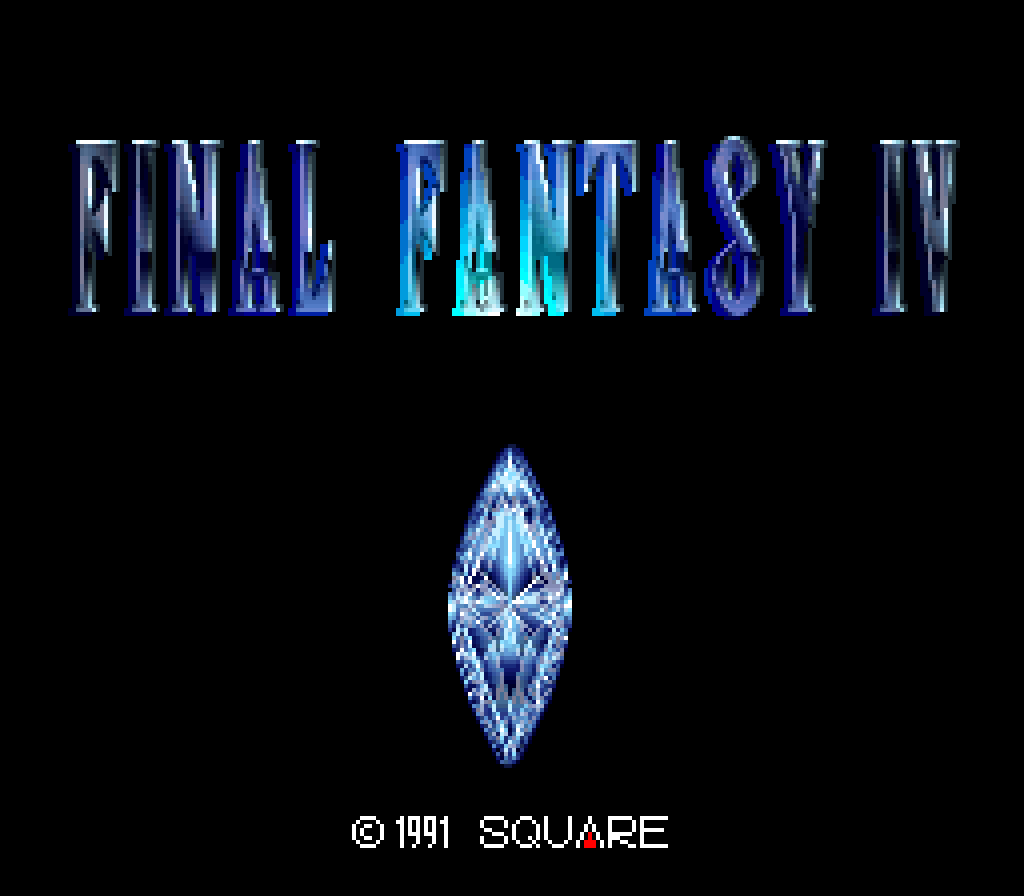
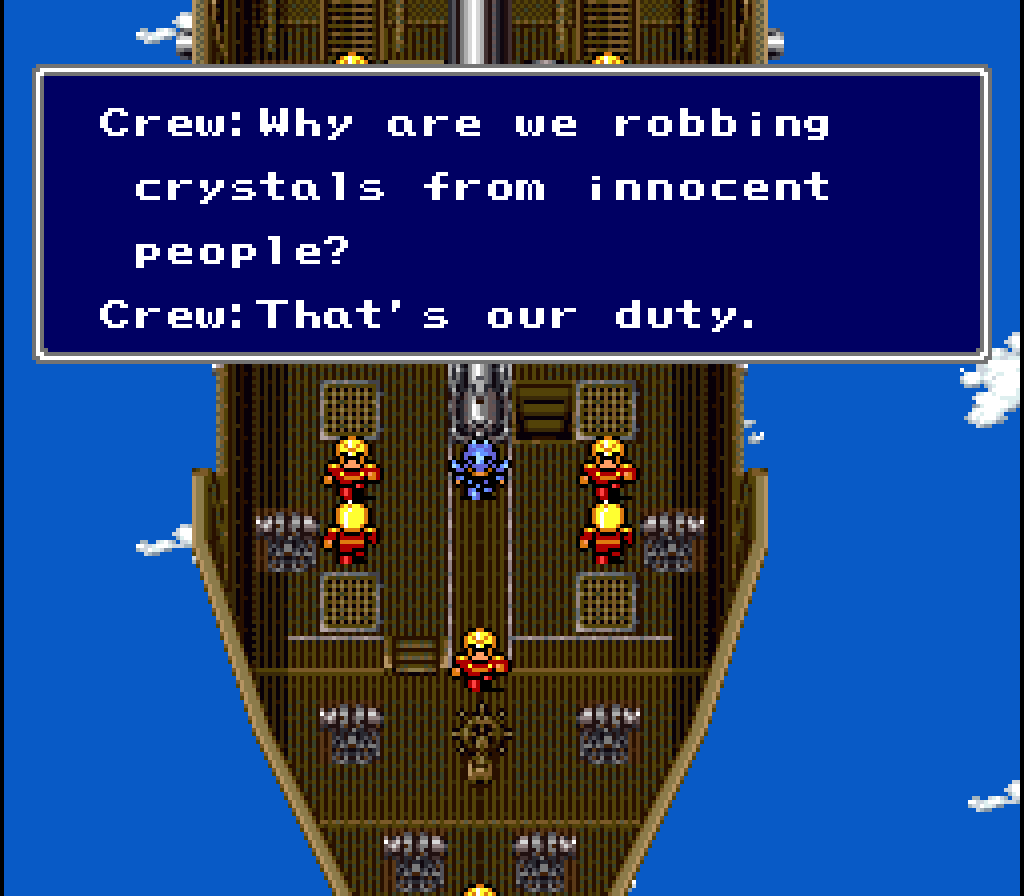
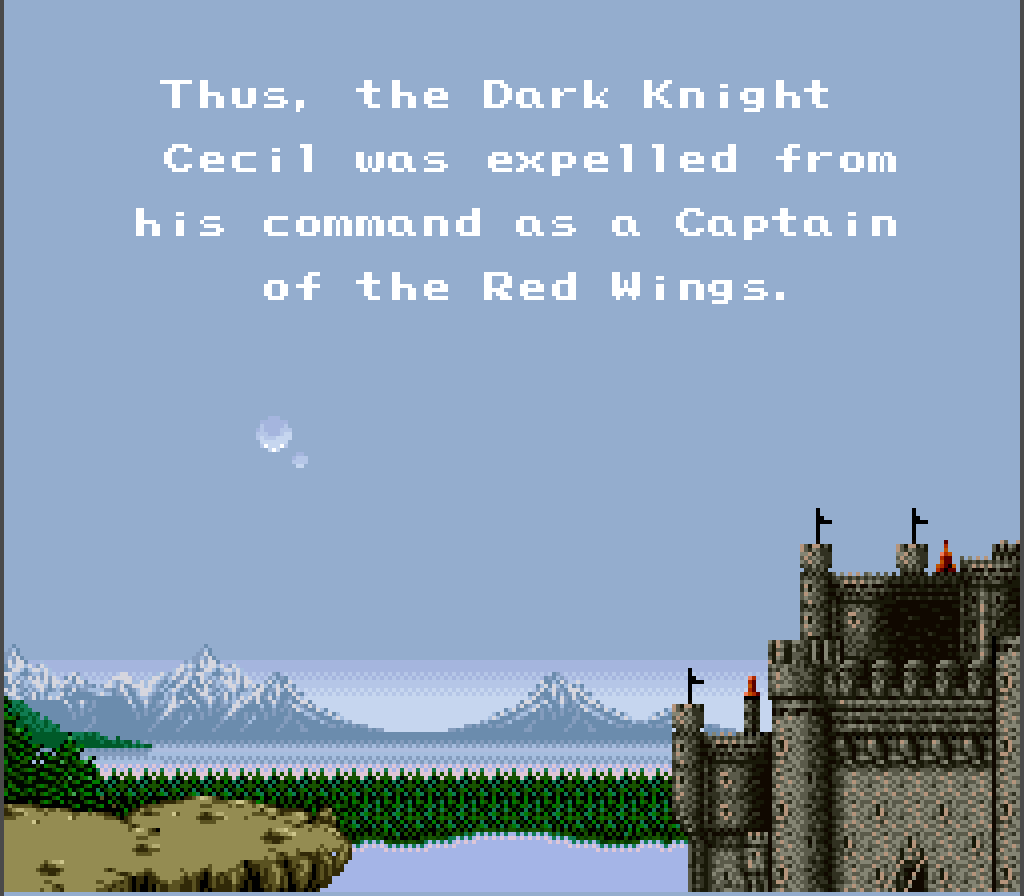
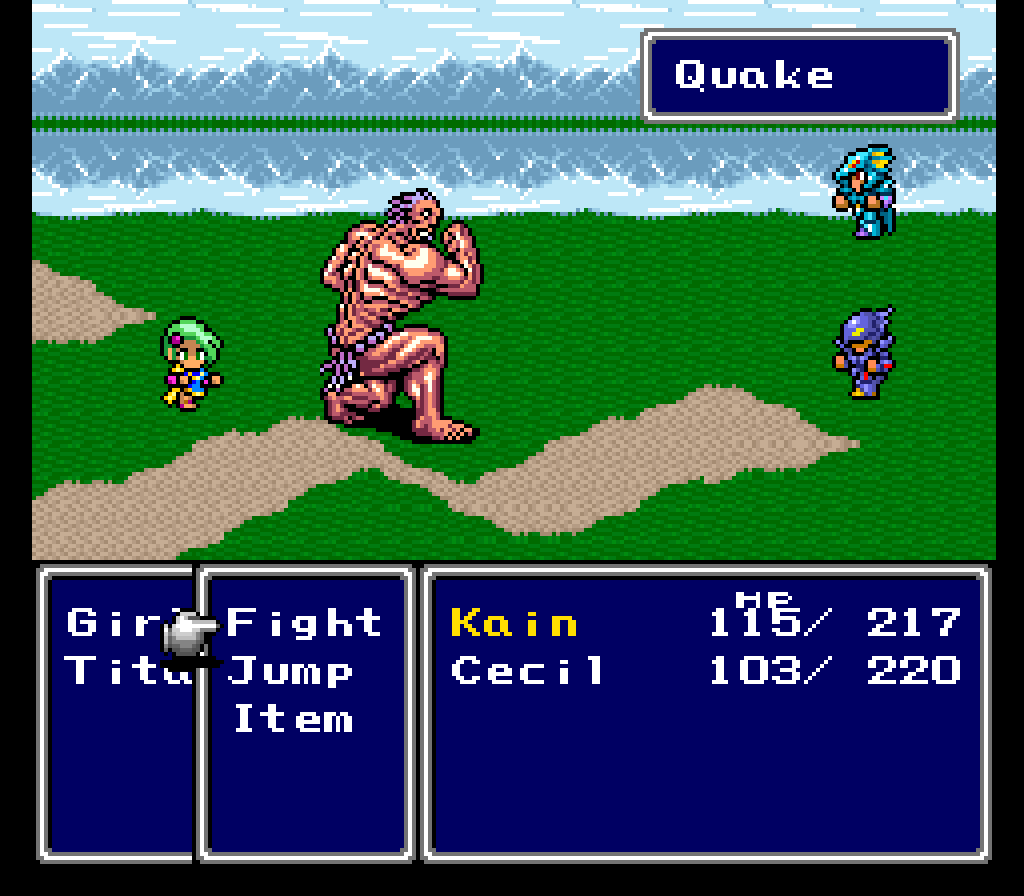
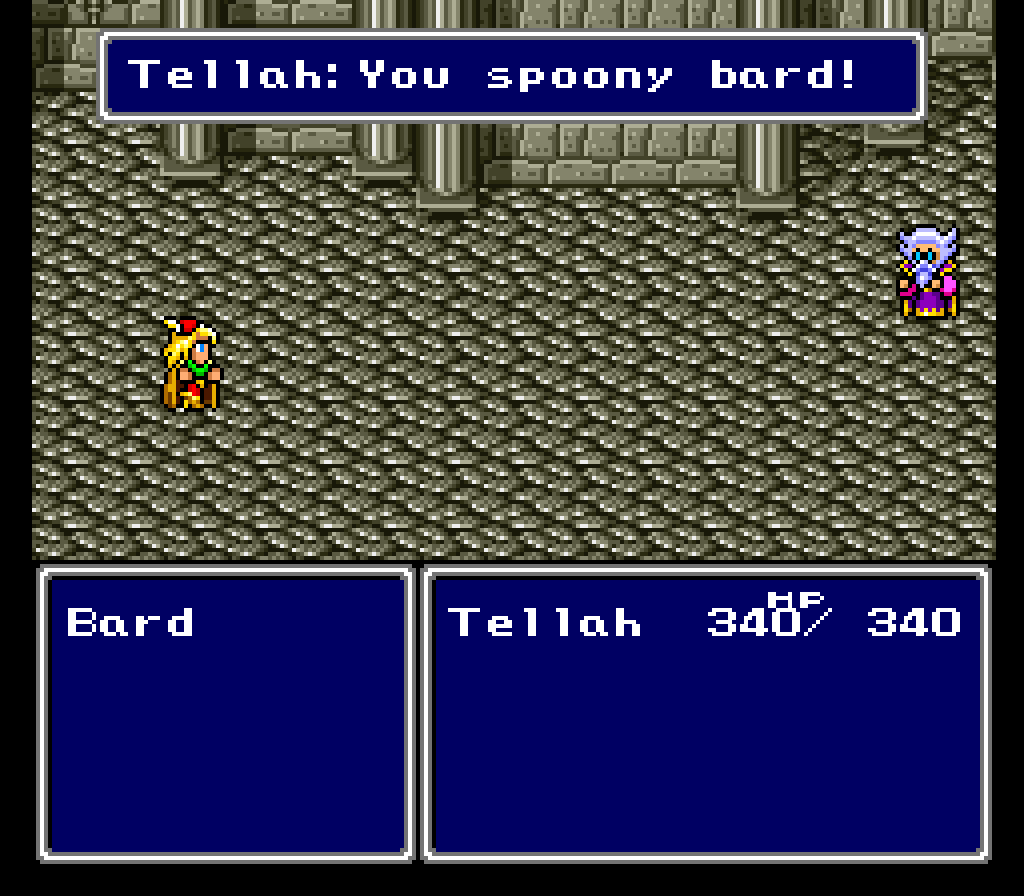
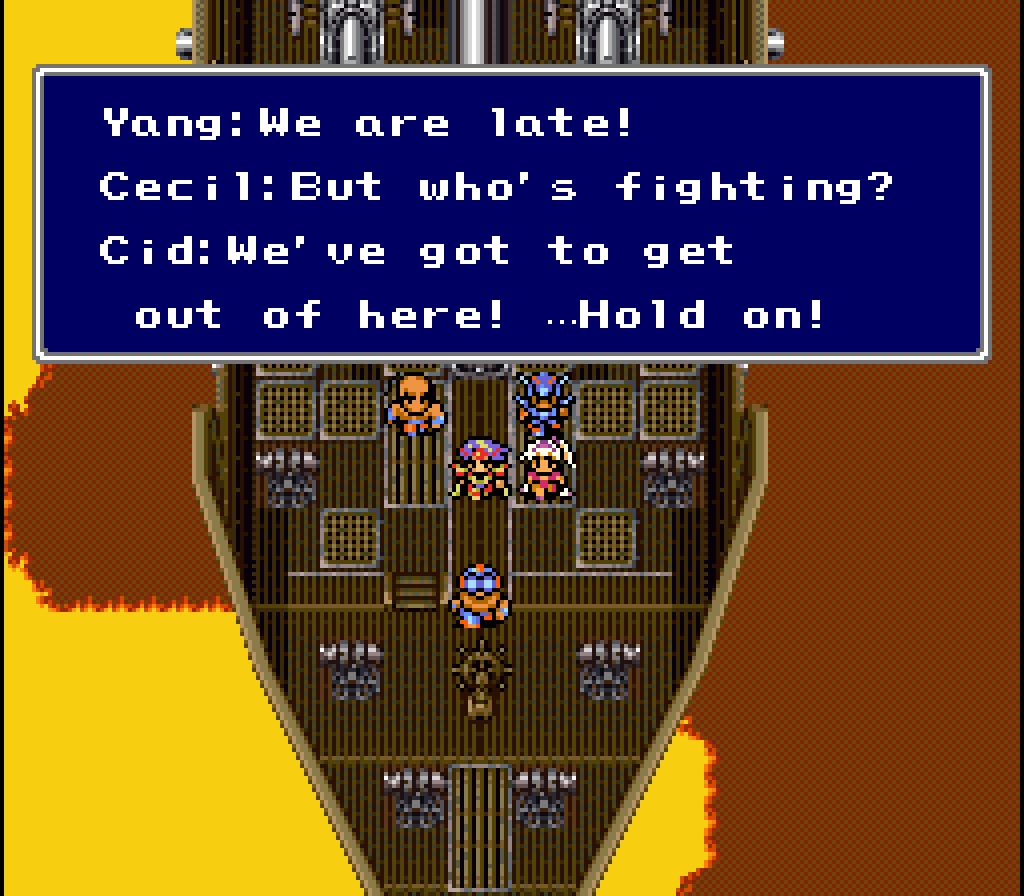
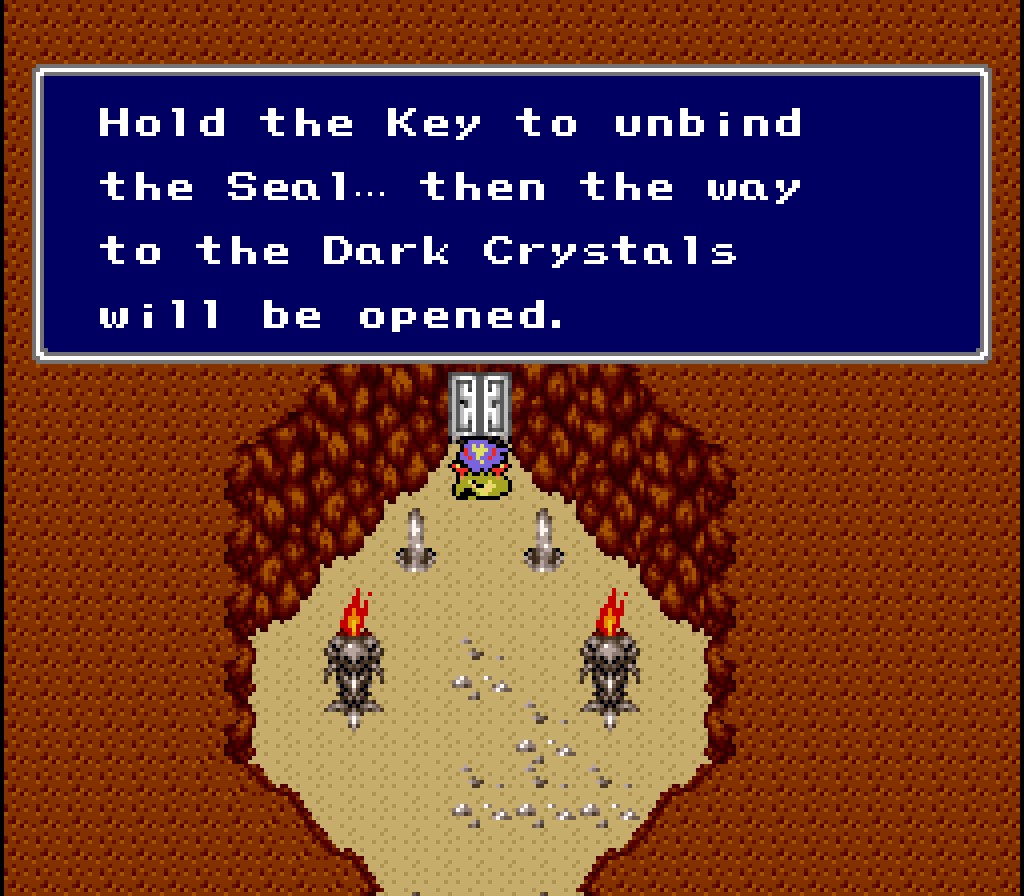
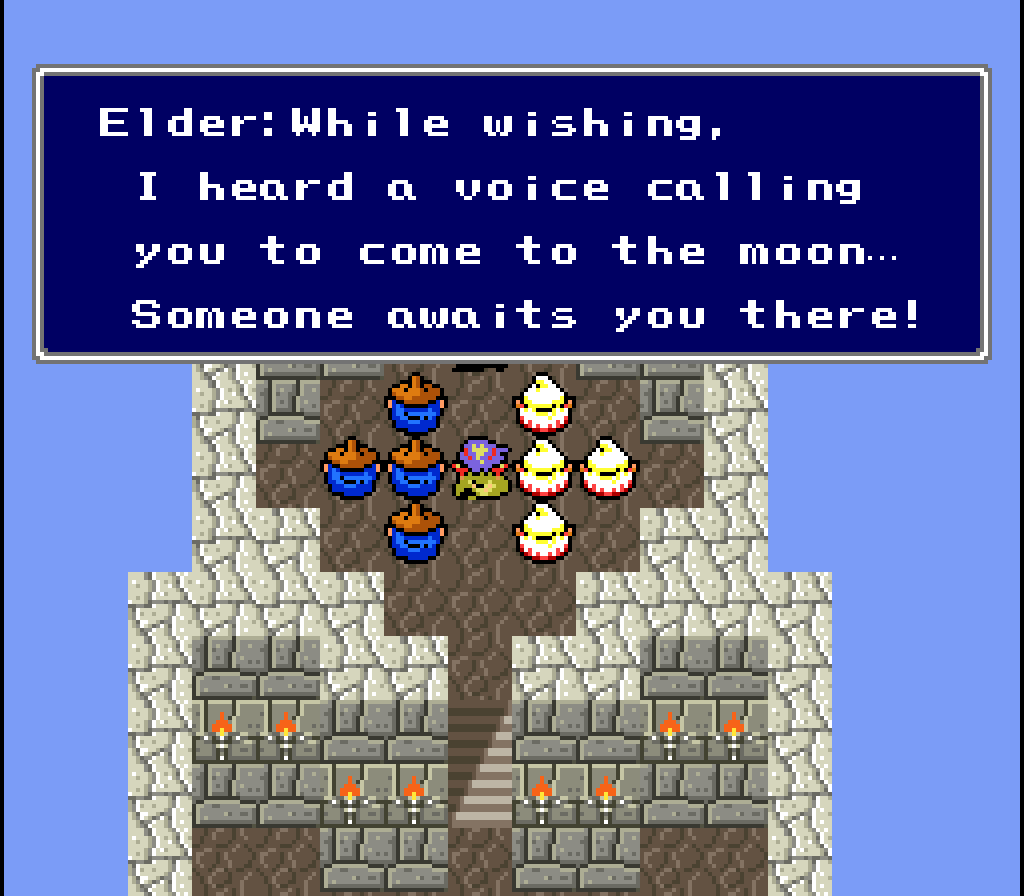
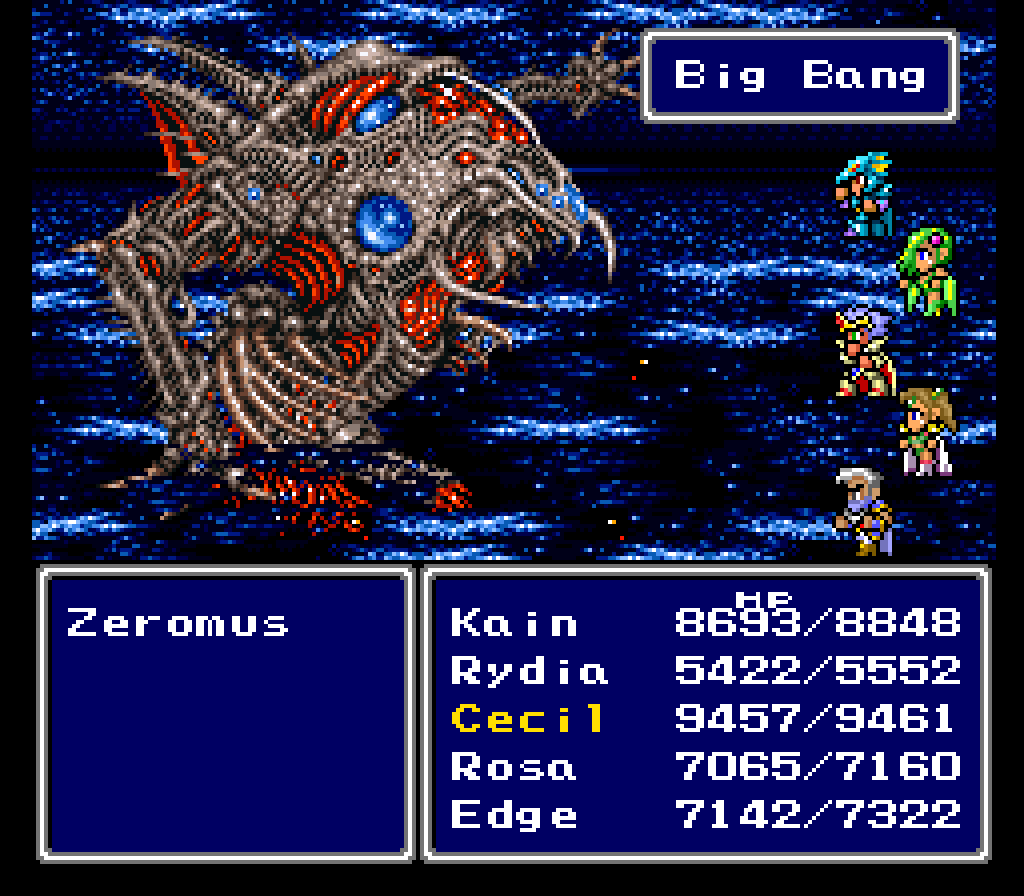
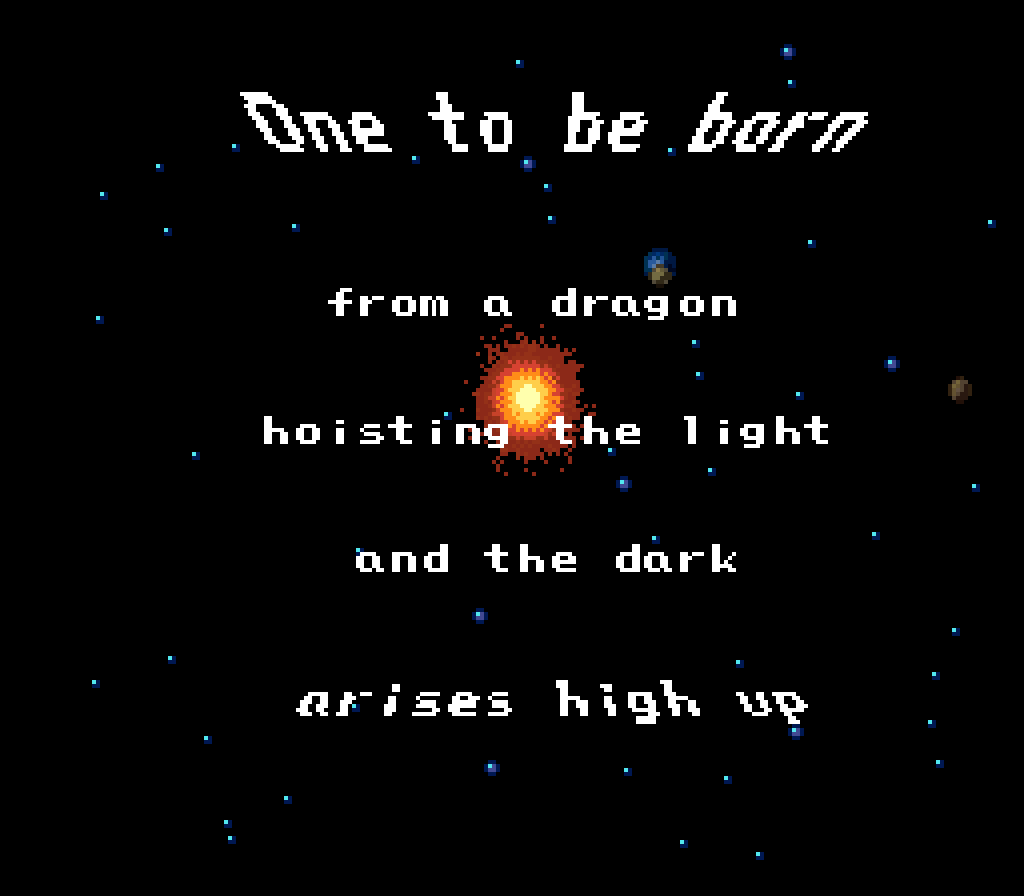
![press start to translate [Final Fantasy IV] press start to translate [Final Fantasy IV]](https://legendsoflocalization.com/wp-content/uploads/2019/08/bbenma.png)
The bard really was spoony, though. They checked.
Unpopular opinion as a FF4 fan, but I really dislike this line, and hate how it’s basically become a meme.
I like the line, but admit it is out of place. If Tellah used more old-timey language, it’d fit better.
Totally agree that everyone spamming it is annoying as heck.
I think spoon is just an inherently funny sounding word. There’s a reason it’s used as a comedic war cry in “The Tick”.
It reminds me of Charles Schulz’s explanation for Schroeder’s love of Beethoven: “The answer is simply that it is funnier that way. There are certain words and names that work better than others. I don’t believe it would be half as funny if Schroeder admired Brahms.” — https://archive.org/stream/MyLifeWithCharlieBrown/CharlesM.Schulz-myLifeWithCharlieBrown2010_djvu.txt
It actually only shows up in Final Fantasy Tactics: The War of the Lions, which had a completely different translation than the original
You bring up a good point with the advent of early Internet access. As memorable as the line was on its own, it was a definite meme during the “webring” era of the mid-90s. Even a fan translator called himself Spoony Bard.
Yes, that was toma. Probably his most famous translation was Glory of Heracles 2, which had enough impact to get the rest of the franchise translated (only the DS iteration was officially localized. Not sure how related it even was, over a decade after the others and the original publisher deceased)
His brother translated some games, including FDS Metroid which also get dedicated to a meme.
I think it’s also relevant that there was a folk belief at the time that games released on Nintendo consoles were heavily censored from the Japanese versions, so many people assumed that “spoony” was just a goofy-sounding euphemism for a swear word.
This is absolutely the case. When FF4 was current, it was common “knowledge” among my friends that Tellah was calling Edward the foulest, sweariest things imaginable in Japanese, and then got censored into oblivion by NOA.
When he’s actually just calling him a sentimental doof 😀
There was a popular internet personality who called himself The Spoony One (or just Spoony for short) who took his name from the famous FFIV line. Sadly, he doesn’t really do any videos anymore, though i would still recommend checking out his backlog. He humorously tore the later Final Fantasy games a new one.
“Like, can you shoot black holes from your mouth, summon meteors, or teleport and stuff?”
Ah, so that’s what Kanata asked the Prinnies originally. Thanks for clearing that up. I haven’t played Trinity Universe in years.
I still think about how this nearly happened to the King of Fabul with that screenshot from the manual, showing him referring to the harbor as a “quay”. Had this not been changed I wonder if that would have become a legendary line that must remain in all FF IV translations forevermore?
‘Quay’ isn’t nearly as antiquated. Circular Quay in Sydney is a tourist spot.
Not an official work, but the old fan translation of Final Fantasy 2 has Borgen call the protagonists “You spoony guys” at one point. I have a feeling the translator of that didn’t exactly know what “spoony” meant.
There’s one more thing, on top of the “people thought it was a censored swear” mentioned above. In addition to practically *no one* knowing what “spoony” meant, a lot of children, especially at the time, didn’t know what a “bard” was. A lot of people played this game really young, and for a lot of them, it was their first exposure to the word. Tellah was the only one who had used the word up to this point if I recall correctly, and even then only a couple of times, while angrily describing Edward.
So if you’re a kid who has no prior experience with fantasy, or who hasn’t been introduced to Shakespeare’s famous nickname yet, it’s entirely possible that the only comprehensible word in that sentence is “you”.
The Bard’s Tale was popular enough at the time to potentially have been a introduction to the concept, maybe through an older brother. I believe the game invented the concept of a bard as a character class, so FFIV’s designers certainly would have been familiar with it. In fact, Square themselves may have had only passing familiarity with a bard outside of game mechanics.
Nope, bards as a class were around as early as first edition Advanced Dungeons & Dragons. If I recall correctly they were an early example of what would later be called a “prestige class”, and were ridiculously powerful. There was a *ton* of D&D influence on early Final Fantasy– the first game’s bestiary is practically a beat for beat reproduction of the Monster Manual, up to including Bahamut as a dragon instead of the fish god of actual real world mythology.
The Bard’s Tale may have been popular among CRPG fans around that time period, but the general gaming population at the time were console gamers, and there was a lot less overlap back then than there is today. If you’d asked the average kid with a Super Nintendo back then what The Bard’s Tale is, they’d have no idea. Final Fantasy “II” on the other hand was pretty popular with Nintendo fans at the time, so I think it’s probable that Edward was the first bard a sizable portion of the audience had seen.
I meant as a class in video games in that I am unaware of any bards before The Bard’s Tale, though your point about D&D and its influence on Final Fantasy is well-taken. I was not thinking about that when I made my comment.
I ran into that quote from Ted Woolsey and included it too when I was writing my “Development of Final Fantasy IV” article for Nintendo Enthusiast. I sourced you twice in that article too! 😀
There’s something interesting about this whole deal that I noticed while reading your FFIV comparision.
The “spoony” bard line has been kept in every port and remake of the game. In the original game, Tella says several things before getting to the line. In basically every other version of the game, however, that line is the *first* thing he says. Like, this scene has become so asociated with the meme, every translator puts that line at the forefront, because hey, this is Tella, the guy who says “spoony”!
I’m not saying this is necessarly a bad thing, I just find it very interesting.
For those wondering, the original Japanese script had Edward/Gilbert/Gilbart saying “Its not like that!” and Tellah retorting with “How can it not be like that?!” or something similar, since it looked for all the world like the bard just lured Anna to her death. That second line is what got translated into the meme.
You have to admit, it’s pretty suspicious that she’s full of arrows when the place was bombed.
Ahhhh, a mention of “Sexy Beam” in there!!
Yeah, kind of interesting that they jammed another reference in there that isn’t half as well-known… and that features English words transliterated into Japanese…
There’s been a trend in recent years of people with disabilities (particularly mental ones or ones that are otherwise not visible to casual observers) calling themselves “spoonies” in relation to Spoon Theory (as coined in an online essay by Christine Miserandino), and it makes me wonder if people who are introduced to the game now take a completely different reading from “spoony bard” than they did 27 years ago.
I’ve got an Ace Attorney manga where they explain the use of the word spoony in the translation notes and they proceed to comment that “In some circles, bards are known to be spoony.”